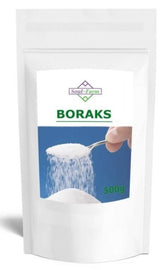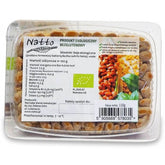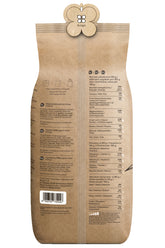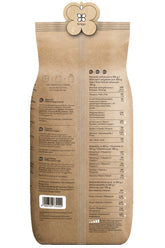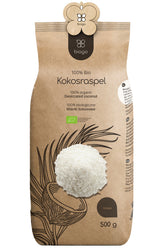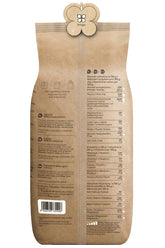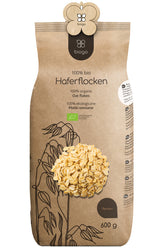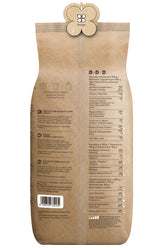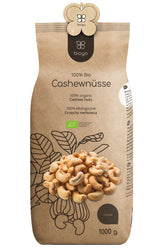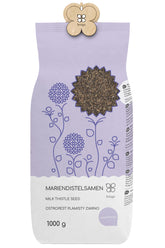5 ecological and health reasons to reduce meat consumption
Contents:
Until recently, most people chose a vegetarian or vegan diet for ethical and moral reasons. Today, there is greater awareness of ecology, economics, and our health. Industrial meat production has a greater impact on the environment than you might think. In fact, even greater than car exhaust fumes, for example. Today, the process of meat production is very lengthy – forests are cleared, entire ecosystems are destroyed to make room for growing feed for farm animals, consuming hectoliters of water and the use of harmful pesticides. The produced feed then has to be transported, etc. More than 70% of agricultural land in the EU is used to produce feed for farm animals.
We produce more and more meat
Interestingly, despite the fact that we increasingly meet people in our environment who have chosen a plant-based diet, meat production and consumption are regularly increasing. Even in the 1960s, meat was not eaten every day. It was rather reserved for special occasions, a Sunday family dinner. Today, the average Pole eats about 79 kg of meat per year (the average European about 90 kg). This means that meat consumption has increased fivefold in the last 50 years. However, all this data does not mean that we should immediately and categorically abandon meat consumption. Following the example of our grandmothers, it is enough to limit it, and it will bring benefits in many ways – health, ethical, environmental, and economic.
Benefits of reducing meat consumption
- Less salt and preservatives in the diet
By reducing meat consumption, we provide our bodies with fewer preservatives, salt, and processed foods. All types of sausages, meats, pâtés, and sausages are generally highly processed products with high salt content. A diet rich in such products promotes the development of cardiovascular diseases, such as high blood pressure.
- Limiting the intake of saturated fatty acids
To provide healthy fats, it's better to eat lentils, nuts, and seeds instead of red meat. By eating less meat, we provide the body with fewer animal fats, which, in small amounts, can have a positive effect on the functioning of the human body, but when consumed in excess, can lead to diseases such as:
- Obesity,
- Arteriosclerosis,
- Disorders of the circulatory system,
- Colon cancer.
Increased contribution to environmental protection
Producing just one kilogram of beef consumes 15,000 liters of water—about 20 times more than producing one kilogram of vegetables and fruit. Industrial meat production contributes to soil drying and global warming through the release of greenhouse gases.
- Clear conscience
Currently, all scientific research shows that animals feel pain, fear, and suffering. A group of international scientists signed a Declaration on Consciousness in Humans and Animals at a conference at Cambridge University, which shows, among other things, that animals have the capacity for conscious behavior and that humans are not unique in this neurological background and consciousness. Mammals, birds, and many other creatures, including octopuses, for example, also have the relevant neurological underpinnings. ( The Cambridge Declaration on Consciousness ). This means that animals deserve more respect than unnatural factory farming, in which animals are artificially bred, fed hormones and fattening diets to gain weight and body size, often have no access to natural light, and spend their entire lives in cages.
- Save
Both good-quality meat and fish are relatively expensive. By limiting our meat purchases and replacing them with legumes, we can not only protect our health but also our wallets. Remember that a healthy diet should be based on minimally processed and natural products.
You don't have to give up meat entirely to experience these benefits. We simply need to reduce our consumption by half and replace some of our meals with healthier, more nutritious plant-based foods. Easily digestible protein is found in legumes, soybeans, and beans , and chia seeds , walnuts, and flaxseeds can be sources of healthy omega-3 acids. The most important thing is that our diet is varied and rich in vitamins and minerals.
THE PUBLISHER'S CHOICE
Almonds 1 kg BIOGO
- €11,69
€13,75- €11,69
- Unit price
- / per
Walnuts 800 g BIOGO
- €8,65
€10,18- €8,65
- Unit price
- / per
Dried organic mango 400 g BIOGO
- €10,99
- €10,99
- Unit price
- / per
Dried White Mulberries 500 g ORGANIC
- €5,84
€6,87- €5,84
- Unit price
- / per
Dried organic figs 800 g BIOGO
- €30,12
- €30,12
- Unit price
- / per
Unpeeled buckwheat groats 1 kg BIOGO
- €2,81
€3,31- €2,81
- Unit price
- / per
Organic coconut flakes 500 g BIOGO
- €10,07
- €10,07
- Unit price
- / per
Organic oat flakes 600 g BIOGO
- €3,77
- €3,77
- Unit price
- / per
Organic cashew nuts 1 kg BIOGO
- €19,99
- €19,99
- Unit price
- / per
Milk thistle seeds 1 kg BIOGO
- €3,99
- €3,99
- Unit price
- / per






